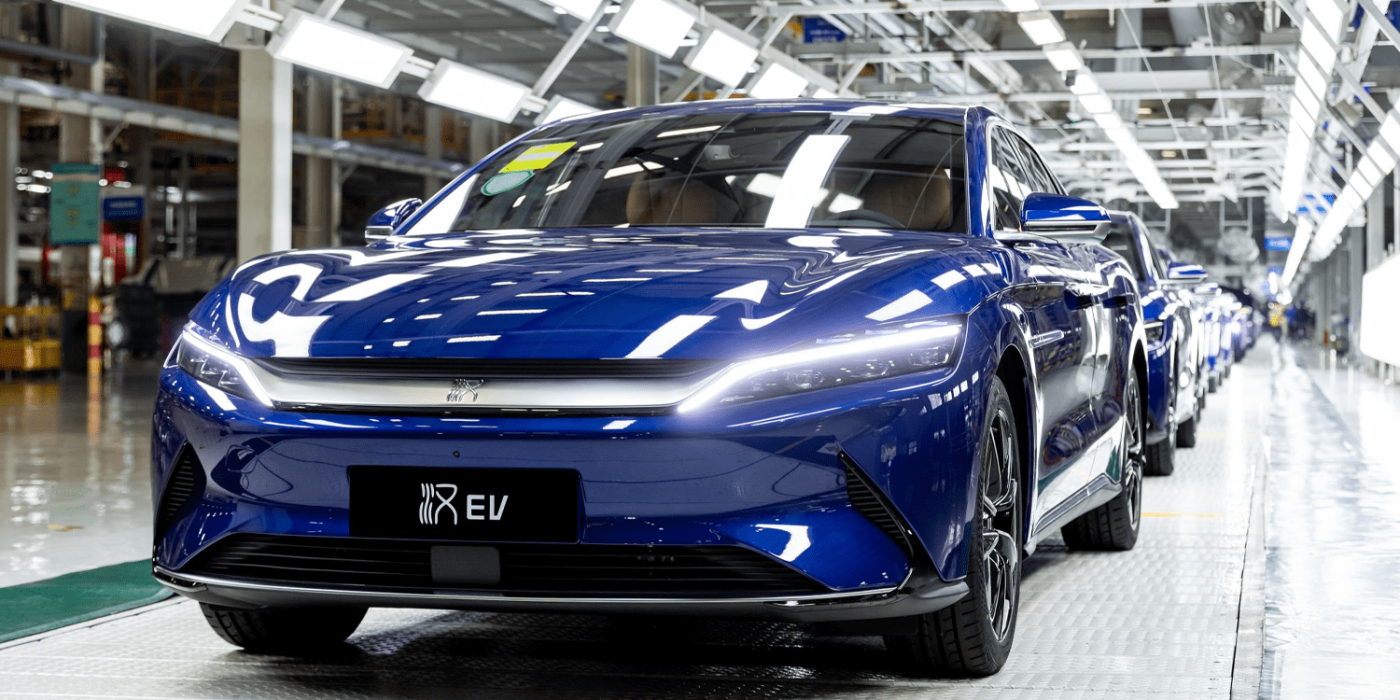Over half a million NEVs sold in China over February
Around 525,000 new energy vehicles (NEVs) were sold in China in February 2023, 55.9 per cent more than in the same month last year and 28.7 per cent more than in January 2023. BYD accounted for the largest number of vehicles – both NEVs and pure battery-electric cars.
After sales in January had fallen not only compared to the traditionally strong December, but also to January 2022, to still 408,000 New Energy Vehicles, they went up again in February to the aforementioned 525,000 NEVs. Of these, 376,000 were BEVs and 149,000 PHEVs. Fuel cell vehicles accounted for just 40 sales in China in February.
However, even if the 525,000 units is now a positive development, this result would still have been one of the weaker months in 2022 – from June to the end of the year there were at least 600,000 NEVs per month, and in December even more than 800,000 vehicles. In addition, February 2022 was negatively impacted by Covid 19 lockdowns.
The development in the distribution within the New Energy Vehicles is interesting. BEVs increased by 43.9 percent compared to the same month last year, but plug-in hybrids almost doubled their result with an increase of 98 percent – a trend that had already become apparent in January. We will not go into the fuel cell cars in more detail here, as at this low level even a single promotion campaign in just one city can have an enormous impact nationwide – with the higher unit numbers of BEVs and PHEVs, these drive types are not as susceptible to these one-off effects.
Incidentally, across all drive types, 1.976 million vehicles were sold in China, up 13.5 per cent year-on-year and 19.8 per cent year-on-year in January. This gave new energy vehicles a market share of 26 percent in February.
The largest manufacturer with 191,664 NEV passenger cars in February alone was BYD, as was hardly to be expected. Of these, 90,639 were BEVs, 101,025 vehicles were plug-in hybrids. This means that around two-thirds of all 149,000 PHEVs came from BYD.
Tesla sold 74,402 electric cars built in the Shanghai giga in February, which is recorded in Chinese wholesale figures. However, 40,479 of these vehicles were exported, leaving 33,923 Teslas going to Chinese customers.
Among Chinese EV start-ups, Nio came out on top in February – the manufacturer’s growing model range resulted in 12,157 BEV sales. Neta also reached five-digit sales with 10,073 BEVs, while Xpeng, which had long been on par with Nio and had also already reached five-digit monthly sales, fell to 6,010 BEVs in February 2023.
The Geely brand Zeekr was able to sell 5,455 BEVs, which is an increase of 87 per cent compared to the 2,916 units sold in the same month last year. However, a second model, the 009 e-van, has been delivered since January this year; last year Zeekr only had the 001 on offer.
One manufacturer that has not yet been able to achieve its 2022 result is Leapmotor. Sales in February were still 3,198 units below the same month last year. In order to reverse the negative trend, Leapmotor is reportedly also relying on internal combustion engines and this month added a so-called EREV drive (i.e. a range extender) to its flagship SUV C11.
Translated with www.DeepL.com/Translator (free version)
cnevpost.com, cnevpost.com (BYD), cnevpost.com (Tesla), nio.com (Nio), cnevpost.com (Neta), xiaopeng.com (Xpeng), cnevpost.com (Zeekr), cnevpost.com (Leapmotor)





0 Comments